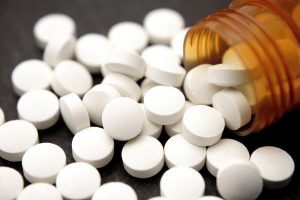 Everybody loves coffee. Millions of people start their morning with a cup of an invigorating and fragrant drink. Coffee is the second most sold commodity in the world after oil. But there is little that causes such heated arguments as coffee, its harmful and useful properties. So far around this drink there are so many myths and misconceptions that it’s time to dispel some of them. Everyone knows two most common sources of caffeine: coffee and tea. But do you know about cola nuts and cocoa beans, because they are also one of the most common sources of caffeine? Do you know how long it remains in your body? And whether its amount depends on the type and size of the portion of the product or drink and how they are cooked.
Everybody loves coffee. Millions of people start their morning with a cup of an invigorating and fragrant drink. Coffee is the second most sold commodity in the world after oil. But there is little that causes such heated arguments as coffee, its harmful and useful properties. So far around this drink there are so many myths and misconceptions that it’s time to dispel some of them. Everyone knows two most common sources of caffeine: coffee and tea. But do you know about cola nuts and cocoa beans, because they are also one of the most common sources of caffeine? Do you know how long it remains in your body? And whether its amount depends on the type and size of the portion of the product or drink and how they are cooked.
Catherine the Great was, perhaps, the biggest fan of caffeine in the history of mankind. The Russian Empress drank 5 cups of coffee a day. It may seem that any office employee can easily outperform the ruler, but wait to rejoice: the preparation of the drink for the ruler included 450 grams of coffee beans per day. For comparison: in a standard serving of espresso or Americano there are 7-9 grams of ground coffee.
Want to know more? Continue reading. Consider some of the most common myths about caffeine and compare them with facts to shed light on them.
Contents
- Myth number 1: Caffeine causes addiction
- Myth number 2: Caffeine can cause insomnia
- Myth number 3: Caffeine increases the risk of osteoporosis, heart disease and cancer
- Myth number 4: Caffeine is harmful for women trying to get pregnant
- Myth number 5: Caffeine is dangerous for children
- Myth number 6: Caffeine has no health benefits
- Myth number 7: Caffeine is the only drink able to increase productivity
- Myth number 8: Caffeine shouldn’t be combined with smoking
- Myth number 9: Coffee eliminates hangover
- Myth number 10: Caffeine can’t be consumed while taking drugs
- Myth number 11: Caffeine may become the reason of dehydration
- Myth number 12: Caffeine helps to lose weight
- Video
Myth number 1: Caffeine causes addiction
 This myth has some truth, but it all depends on what you mean by “getting used to.” Caffeine is a stimulant of the central nervous system, and regular use causes mild physical dependence. But it does not threaten your physical, social, economic status or health compared to drugs.
This myth has some truth, but it all depends on what you mean by “getting used to.” Caffeine is a stimulant of the central nervous system, and regular use causes mild physical dependence. But it does not threaten your physical, social, economic status or health compared to drugs.
If you stop taking caffeine dramatically, you can have some symptoms for a day or more, especially if you consume two or more cups a day. No doubt, you may have a few bad days. Symptoms after giving up having caffeine may be the following:
- headache;
- fatigue;
- anxiety;
- irritability;
- depressed mood;
- difficulty concentrating.
Interesting: Caffeine does not cause the severity of withdrawal symptoms or addiction behavior, like drugs or alcohol. For this reason, most experts do not consider this dependence to be serious.
Back
Myth number 2: Caffeine can cause insomnia
 Your body quickly absorbs caffeine but it also quickly gets rid of it. It is mainly processed in the liver, and has a relatively short half-life. For most people, a cup of coffee at two in the afternoon will not stop sleeping at night.
Your body quickly absorbs caffeine but it also quickly gets rid of it. It is mainly processed in the liver, and has a relatively short half-life. For most people, a cup of coffee at two in the afternoon will not stop sleeping at night.
But caffeine consumption after 2 pm can interfere with your sound sleep. Most people don’t have insomnia in case of having caffeine at least six hours before the bedtime. Your sensitivity to this product may change periodically, it all depends on:
- your metabolism,
- the amount of caffeine you regularly consume.
The only exception may be people who are more sensitive and have side effects from its use, such as gastrointestinal disorders. Pay attention to how much coffee and the time of its last reception you feel the symptoms of insomnia and adjust your habits.
Interesting: The period of getting your body out of caffeine takes about 5 to 7 hours, on average during this time, most of it has already left your body. After 8, 10 hours, 75% of caffeine has gone.
Back
Myth number 3: Caffeine increases the risk of osteoporosis, heart disease and cancer
 A moderate amount of daily intake is about 300 milligrams, or three cups – does not do any harm to most healthy adults. But, for some people, the effect of caffeine may be stronger and they are more vulnerable to it, and you should consider this. People who are sensitive include people who have high blood pressure or older people.
A moderate amount of daily intake is about 300 milligrams, or three cups – does not do any harm to most healthy adults. But, for some people, the effect of caffeine may be stronger and they are more vulnerable to it, and you should consider this. People who are sensitive include people who have high blood pressure or older people.
Here are some facts:
- Osteoporosis: with a high level of caffeine consumption (more than 744 mg a day), it can increase the loss of calcium and magnesium by your body. But recent studies suggest that this does not increase the risk of bone loss, especially if you get enough calcium from an external source. You can compensate the lost calcium from consuming one cup, adding only two tablespoons of milk to your coffee. However, the study does show some connection between caffeine and the risk of hip fracture in the elderly. Elderly people may be more sensitive to its effects on calcium metabolism. Elderly people should discuss the amount of caffeine with the doctor and probably limit its daily intake to 300 mg or less.
- Cardiovascular diseases: Insignificant temporary increase in the heart rate and blood pressure occurs in those who are sensitive to caffeine. But several large studies do not link its use with increased cholesterol, irregular heartbeat, or an increased risk of cardiovascular disease. But if you already have high blood pressure or heart problems, it will never hurt to consult a doctor about your caffeine intake. You may be more sensitive to its consequences than everyone else.
- Cancer: Reports from 13 studies involving 20,000 people showed no association between cancer and caffeine. In fact, caffeine can even have some protective effect against several types of cancer.
Besides the mentioned diseases, according to the clinical studies, the consumption of caffeine does not increase the risk of breast cancer in women and is not associated with the development of breast disease.
Interesting: People who are sensitive include people who have high blood pressure or older people. If you don’t refer to these two groups of people, you can enjoy three cups of coffee or tea per day without any worries.
Back
Myth number 4: Caffeine is harmful for women trying to get pregnant
 Many studies have not shown a link between a low intake of caffeine (a cup of coffee a day), and any of the following problem:
Many studies have not shown a link between a low intake of caffeine (a cup of coffee a day), and any of the following problem:
- problems with conception;
- miscarriage;
- birth defects;
- premature birth;
- low fertility;
Interesting: Pregnant women or those who are trying to become pregnant are recommended to have about 200 ml per day.
Back
Myth number 5: Caffeine is dangerous for children
 Children between the ages of 6 and 9 consume an average of about 22 milligrams of caffeine a day. This is quite within the recommended limits. However, energy and carbonated drinks that contain a lot of caffeine are becoming more and more popular, so this number may increase.
Children between the ages of 6 and 9 consume an average of about 22 milligrams of caffeine a day. This is quite within the recommended limits. However, energy and carbonated drinks that contain a lot of caffeine are becoming more and more popular, so this number may increase.
Some children are sensitive to caffeine and may experience:
- a symptom of “anxiety” or irritability, which can lead to a nervous breakdown afterwards.
- in addition, most children who consume carbonated and energy drinks with caffeine, or sweetened tea, receive a higher amount of sugar.
Moreover, empty calories quickly settle on young bodies and expose children to the risk of obesity. Children are not more sensitive to caffeine than adults. Although this component is excreted out of a child’s body twice as fast as from an adult’s body. Despite the fact that kids are not addictive to caffeine, it is necessary to limit them from excessive consumption of coffee, as it can disrupt the metabolism. In addition, hyperactive children are not recommended to abuse coffee as this causes emotional stress.
Interesting: Caffeine in itself is not very harmful but the drinks containing it are usually not very useful for children.
Back
Myth number 6: Caffeine has no health benefits
 Caffeine has several proven health benefits. But the list of potential benefits of its reception is very interesting. Anyone who regularly drinks coffee can tell you that his attentiveness, concentration, energy, clarity of mind, and sociability has improved. Perhaps you are even one of those who need it, when in the morning you just need to take a sip of coffee before saying one word. Scientific research confirms these subjective conclusions.
Caffeine has several proven health benefits. But the list of potential benefits of its reception is very interesting. Anyone who regularly drinks coffee can tell you that his attentiveness, concentration, energy, clarity of mind, and sociability has improved. Perhaps you are even one of those who need it, when in the morning you just need to take a sip of coffee before saying one word. Scientific research confirms these subjective conclusions.
Other possible benefits include helping with certain types of headache. Some people suffering from asthma, when using caffeine, feel better. Of course, these studies are intriguing, but they are still not fully proved. Some evidence suggests that the risk of the following diseases can be reduced:
- Parkinson’s disease;
- liver disease;
- colorectal cancer;
- Type 2 diabetes mellitus;
- Dementia.
Despite all these advantages, do not forget that the effect of caffeine can have an adverse effect. As they say everything should be in moderation and one shouldn’t have it much at work, even if it helps to concentrate.
What is more interesting: Specialists from Stanford University were able to explain the interesting fact, that coffee lovers live longer! It turned out that caffeine can reduce the level of chronic inflammation that can occur in the body, which is the cause of the appearance of various diseases such as Alzheimer’s disease, oncology, heart problems, blood vessels and osteoarthritis.
Scientists conducted experiments on rodents that showed that degradation products, which are known as nucleic acid metabolites, can cause inflammation, and caffeine can successfully withstand this process.
These acids begin to move in the blood because of increased activity of free radicals, but the higher such activity, the more likely the occurrence of life-threatening diseases.
For this reason, scientists advise not to give up coffee, tea and dark chocolate, as these products in moderate amounts benefit the body.
Japanese scientists conducted a study in which they found out that coffee improves the work of blood vessels. For this purpose, specialists used the method of laser Doppler flowmetry. Participants in the study were 27 volunteers from 22 to 30 years. Half of them drank natural coffee, while the others consumed decaffeinated coffee. After that, the scientists analyzed the work of the vessels. It turned out that the flow of blood to the fingers of those who consumed natural coffee, significantly improved. Note that this is due to the fact that caffeine does not always act negatively on the circulatory system. It can help the vessels to open up better, thereby reducing inflammation and increasing blood flow to the fingers by 30%.
To confirm this theory, scientists conducted several identical experiments and the result was the same and the positive effect of coffee lasted only 70-75 minutes.
Interesting: Some French studies have even shown that in women who have consumed it, the mental faculties decrease became slow.
Back
Myth number 7: Caffeine is the only drink able to increase productivity
 Many people swear that they cannot live, work and function without caffeine. But its significance is greatly exaggerated. Stimulants that are attributed to coffee can be found in:
Many people swear that they cannot live, work and function without caffeine. But its significance is greatly exaggerated. Stimulants that are attributed to coffee can be found in:
- tea,
- soft drinks,
- chocolate,
- some herbs, etc.
A cup of coffee in the morning seems to give a rush of adrenaline, because your heart starts to work faster, the blood sways more intensively and you start to breathe often, which gives you a sense of excitement, but this reaction usually does not last more than two hours.
Most often the combination of caffeine and sugar helps to increase your activity and productivity. But when their action stops, you get a strong decline in your performance. It has long been noted that such people often experience headaches in the morning without a divine sweet drink.
Interesting: The effect of caffeine varies from person to person. Some people need a few cups before they wake up completely, while others need only one serving.
Back
Myth number 8: Caffeine shouldn’t be combined with smoking
 Many people like to drink coffee with a cigarette. Studies have shown that smokers consume significantly more coffee than non-smokers.
Many people like to drink coffee with a cigarette. Studies have shown that smokers consume significantly more coffee than non-smokers.
Some facts not everyone knows about the combination of coffee and cigarettes:
- Nicotine has the property of removing caffeine from the body. Consequently, the smoker is more likely to need caffeine.
- According to the research received, those who quit smoking do not reduce the need for caffeine for about six months.
Interesting: It should also be noted that decaffeinated coffee often causes a need for a cigarette.
Back
Myth number 9: Coffee eliminates hangover
 One of the most common myths about the properties of coffee is that it is able to eliminate hangover, however, there are a few things to keep in mind:
One of the most common myths about the properties of coffee is that it is able to eliminate hangover, however, there are a few things to keep in mind:
- Caffeine is not at all an antidote to intoxication.
- Caffeine gives a person only a sense of relief after a cup of coffee but this is due solely to the consciousness of the person himself.
- Coffee can only raise the tone a little. All the effects of alcohol are not neutralized by caffeine.
Interesting: Coffee is not aimed to help with the hangover elimination, however, some people use it believing it really helps and get some relief.
Back
Myth number 10: Caffeine can’t be consumed while taking drugs
 In most cases, there won’t be any harm from one or two cups of natural coffee but it is always better to consult a doctor if you have any doubts concerning your individual reaction of body after consuming products containing caffeine.
In most cases, there won’t be any harm from one or two cups of natural coffee but it is always better to consult a doctor if you have any doubts concerning your individual reaction of body after consuming products containing caffeine.
A couple of things to remember:
- Caffeine can enhance or weaken the effect of certain drugs.
- Patients taking antidepressants or barbiturates should not consume coffee in large quantities.
The caffeine content can range from 160 milligrams, in some energy drinks, to as little as 4 milligrams per 30 milliliters of baked hot chocolate (cocoa). Even decaffeinated coffee is not completely a decaffeinated drink. It is also present in some pain relievers, in medications and diet pills. These foods can contain from 16 milligrams or as much as 200 mg of caffeine. In fact, caffeine itself is a mild analgesic able to increase the effectiveness of other painkillers.
Interesting: In case you have other drugs, 1 or 2 cups are allowed (this refers to natural, not soluble coffee).
Back
Myth number 11: Caffeine may become the reason of dehydration
 You’ve probably heard that caffeine causes dehydration. However, this is a myth. Proof of this was received in 2000, when scientists, following the recommendations of the UK Health Committee, conducted a series of experiments:
You’ve probably heard that caffeine causes dehydration. However, this is a myth. Proof of this was received in 2000, when scientists, following the recommendations of the UK Health Committee, conducted a series of experiments:
- A group of men took different doses of caffeine for 11 days.
- None of the participants in the study showed signs of dehydration, moreover, some of them had positive influence of caffeine, which was shown in the elimination of depression.
Caffeine does not cause profuse urination. However, liquids consumed in beverages with caffeine can increase the amount of urine.
Interesting: Caffeine acts as an easy diuretic, but studies show that drinking caffeinated drinks does not cause dehydration.
Back
Myth number 12: Caffeine helps to lose weight
 Some people believe that caffeine is able to solve their problem of excess weight. However, there is no ground thinking that caffeine can help you lose weight. There are no facts confirming this. It is know that:
Some people believe that caffeine is able to solve their problem of excess weight. However, there is no ground thinking that caffeine can help you lose weight. There are no facts confirming this. It is know that:
- Caffeine suppresses appetite, but for a good effect of losing weight only caffeine isn’t enough as you need to balance your diet and have regular exercise. By itself, caffeine does not make you slimmer.
- Caffeine is a good anti-cellulite ingredient from cellulitis. But its effect is noticed only in the period of use.
Interesting: Being ineffective for losing weight, caffeine can help women get rid cellulitis if used on the regular basis.
Back





